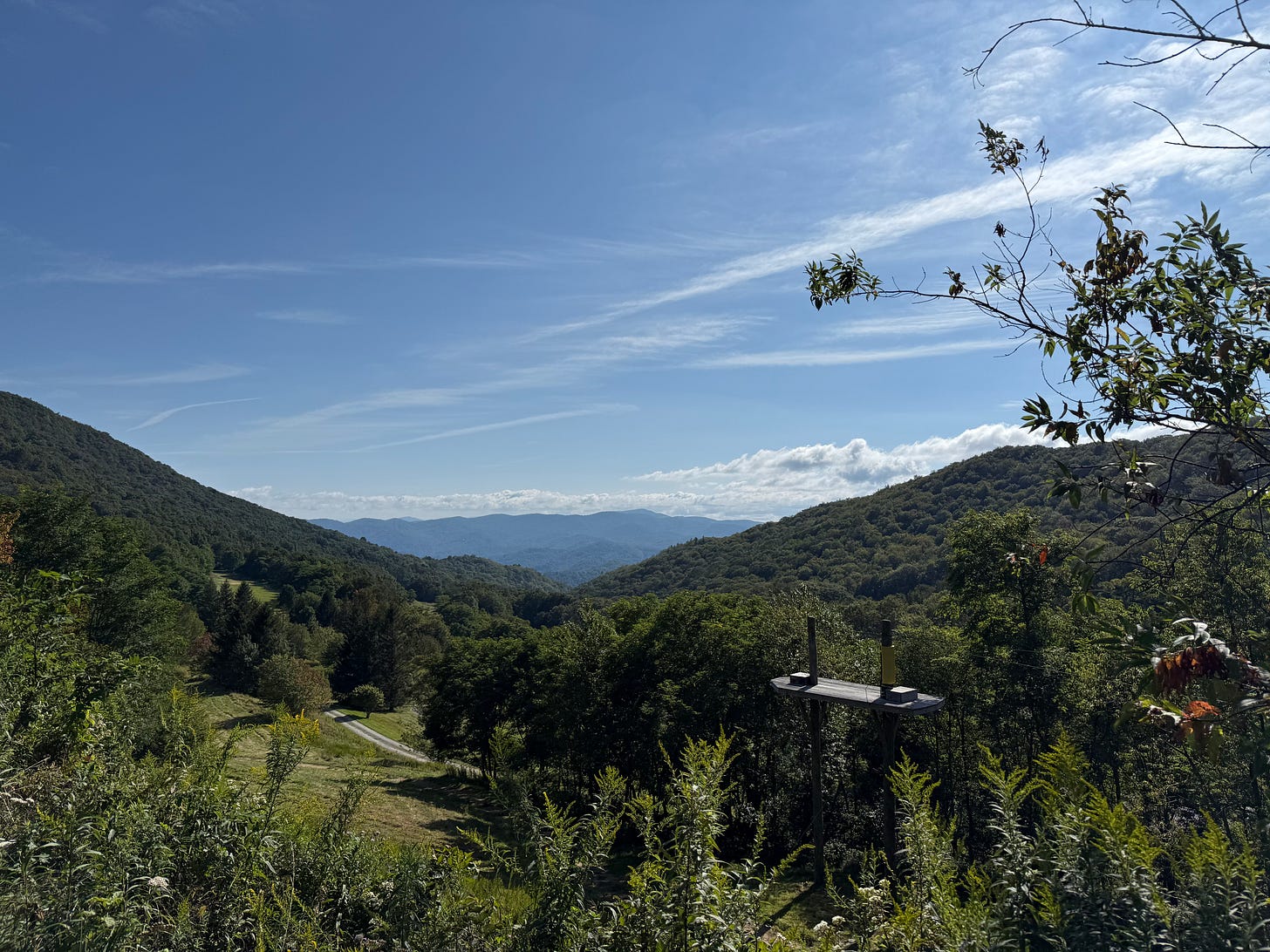The Third Way to a Good Life
What if joy and meaning aren’t enough?
Last week, journalism legend Susan Stamberg retired. NPR aired a beautiful reflection on her decades-long career, one filled with exceptionalism, achievement, and grit. If you’ve got seven minutes and a soft spot for cranberry relish jokes, it’s well worth the listen.
At the end of the story, a clear connection was drawn between Stamberg’s career as a journalist and the core who she is: curious, funny, generous, and tough. All words I’d love to have define my career and my person. Anyone who has ever listened to a piece she’s done can clearly hear that she loved her work.
Days later, I found myself consuming a very different take on careers and work. Culture Study’s Anne Helen Peterson’s excellent piece on work, The Futile Search for the Bullsh*t-Less Job, posited a very different take absent the warmth of the “well lived career” references found in the Stamberg reflection. Her piece takes on the modern working world—and its brokenness—head-on.
Finding work at all, (let alone joyful or meaningful work) is difficult, Peterson points out. Her piece ultimately makes a case for charting one’s own path in careers, but not to pioneer or change an industry. Instead, it’s because there’s really not another option anyway so may as well have the control self-employment brings (give her entire piece a read, btw, it’s worth it).
It left me wondering:
Are there no more careers that one can pursue like Stamberg’s? Is joyful or meaningful work over?
And, if it is, what do we hold on to instead?
If neither joy nor meaning is on offer, what then?
I’ve made no bones here about the fact that I no longer want to define myself by work the way I did for the first 20 years of my career. I was an employee of “Company X” first and all the other things after.
Now? I hate the “so what do you do” question, and the assumption that the answer must be something about work vs. something about your beekeeping hobby or penchant for long walks in the woods.
But I’ll also acknowledge that we all do an awful lot of working. It needs somewhere to live in our identities; some framing that doesn’t reduce us to meaninglessness, sadness, or boredom.
The conflicting takes on work I’ve absorbed have bounced around in my head this past week. And they collided with something else a friend recently shared with me: a University of Florida study on “the good life.”
The study asked whether the two classic paths to a good life, happiness and meaning, were too limiting. Their determination? Yes. They proposed a third option: psychological richness.
Defined as “experiences that challenge you, change your perspective, and satisfy your curiosity,” psychological richness isn’t always happy or meaningful in the traditional sense. According to researchers Westgate and Oishi:
“A psychologically rich life can come from something as simple as reading a great novel or hearing a haunting song,” Westgate said. “It doesn’t have to be about dramatic events, but it can shift the way you see the world.”
They note that these experiences are often neither pleasant nor purposeful. But they are ones that change us.
College. A hurricane. A weird road trip. A challenging new project. A career change to contracting and consulting with a smattering of coaching.
As I think about my relationship with work (which, by the way, is an increasingly squishy term to me) I wonder…
What if we’re overlooking another dimension of fulfillment that needs to define this era of working life?
I am realizing that my own compass for a good life is far more aligned to psychological richness than happiness or meaning. Spending nine months or more of the year living on a sailboat with three other humans and a dog? At times, the polar opposite of happy. Sometimes not even meaningful.
But 100% of the time?
Psychologically rich.
Maybe many of us are just wired for psychological richness. And maybe our work needs to be looked at through that lens, too.
What I’m wondering is this: Can we aim for a work life that’s not just meaningful or joyful, but rich?
I want to experience work where each day stretches me, surprises me, or shifts my perspective. I want to live out a professional life like Susan Stamberg’s, where I can say “I learned from this. And I loved it,” even decades in. It’s a life like the one some remind us might feel out of reach…but maybe isn’t.
I’m curious: have you ever felt psychologically rich at work? Not just happy or purposeful. But changed. I’d love to hear about it.
Hi, I’m Ashley. I write Beyond the Break. This is a space for honest storytelling, identity-in-motion, and the messy middle of personal and professional growth. Through storytelling and reflection, I explore what it really means to build an intentional, sustainable, and meaningful relationship with work and life.
I’d love to hear from you. Drop a comment or send me a message. Let’s connect.




Hey Ashley! For restoring from burnout I took a sabbatical, not just for healing but also for growing personally and changing the way I lived.
Once I said, my manager job is my life. Today it’s clear my sabbatical is my life (beside my lovely family).
Why?
In my sabbatical I stretch every day. I can’t help myself but I must learn and learn. Languages, carpentry, vibe coding, citrus plants, …
I enjoy this new kind of work so much, as it makes me psychologically rich. (Not materially, what I better change soon :) )
Thank you for your article. Let’s subscribe each other’s pubs. Read you soon!
Great insight